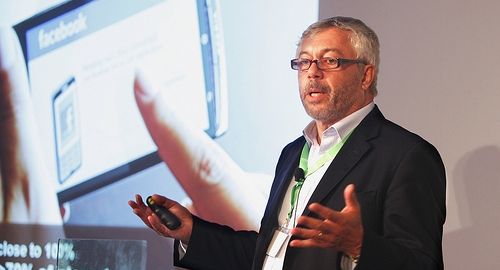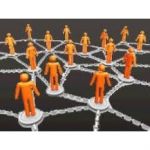So, in less than 20 years a huge shockwave hit the traditional economic powers of the 70s, the US, Europe and Japan. 3 billion people who, for various reasons were isolated from what we called the Western world, started to play a role and to compete with “US”.
These 3 billion people, half of the world population in the 90s, want a more balanced world, a world where they can be part of all the institutions and the global decision‐making processes that are shaping the future of our planet.
How did WE react to this formidable challenge during the last 20 years?
Well great thinkers of the Western world thought that we had the best economic and political systems and that these new and fast‐growing countries had to learn from us, that they had to adapt to us. How arrogant and complacent that was.
Worse, the US, Western Europe and Japan spent the last 30 years living way above their means, they invented very sophisticated financial techniques that allowed our governments, central bankers and other key decision‐makers to ignore the looming crisis of private and sovereign debt. The West was in denial. And, to a certain extent, still is in denial. We have not understood how to adapt to the "3 billion new traders challenge". I'll share with you later what I think it means for the PR industry.
Let's move to the "1 billion journalists" challenge.
Not long ago, the media industry, so important for our PR activity, was a very capitalintensive industry. Journalists were employed by those tycoons that could invest in global news‐gathering networks, Dow Jones or Reuters, or in TV and radio broadcasting networks, or able to invest in expensive print and distribution systems. They were dictating the news agenda and were influencing comment and analysis pages or programs that, in turn, were influencing the masses.
This still exists of course but, nowadays, a clever individual can also reach a massiveaudience through the web and “social media”, without belonging to one of the big news organizations. News can travel faster on Twitter that it does on Reuters, Dow Jones or Bloomberg. Worse the credibility and reputation of journalists is probably at an all‐time low. And the phone‐hacking issue is only one of too many scandals that have tarnished the reputation and trustworthiness of news organizations.
Today anyone who has a good or bad experience with a company, an institution or with a brand can express his or her views openly and reach tens of thousands of “friends”, or more, at the speed of light. News published by these individuals travel around the world in seconds. This global connection used to be the privilege of the financial community, but it now happens in any on‐line organized community. Conversations are happening 24/7, in a very fragmented world that has no boundaries. Maybe some of you are tweeting right now: summits, conferences can't any longer happen between closed doors.
We are bombarded with numbers: "if Facebook was a country it would be the third largest country in the world, with its 800 millions "friends". There are millions of videos being downloaded from Youtube every hour, 80% of people today are aware of Twitter, but only 16% are using it, etc..
Is it a fad? I don't think so. Ask the music industry: its managers didn't accept that a peer‐topeer technology invented by two students in the late 90s would transform their industry.













